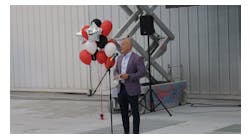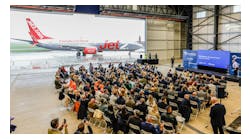Ensuring Workforce Supply for the Asian MRO Market
Despite high oil prices and currency fluctuations, airlines in the Asia Pacific region managed to earn a net profit of $3 billion in 2013. Moreover, this year they are expected to scoop up $3.7 billion. As, according to Boeing, by 2033 nearly 50% of global traffic will be to, from or within the region, it will need over 13 400 new aircraft to accommodate the growing demand. Taking this into account, the outlook for MRO service providers across the region should be rosy. But is it really?
It is rather difficult to fail noticing that both Boeing and Airbus are pursuing major expansion of operator fleets across Asia at the moment. It is estimated that China alone will need over 6 000 new commercial aircraft valued at $870 billion over the next 20 years, with local carriers awaiting the delivery of nearly 45% of all new commercial aircraft in the Asia-Pacific region over the next two decades. However, finding the technicians to maintain such a fleet is likely to cause MROs, as well as training and educational establishments severe headaches.
"Despite the benefits of the on-going growth of the local fleet, one of the most important issues facing Asia-Pacific’s aviation industry is still the upcoming deficiency of MRO specialists. Unlike the U.S. or Europe, which can rely on the flow of ex-military personnel, Asia cannot afford to enjoy such a luxury. As a result, most of the technicians employed at Asian MROs are either commercial recruits, or inexperienced specialists hired directly from relevant educational courses. This brings us to the problem that the pool of appropriately skilled personnel regionally may not yet be developed enough to fulfil the industry’s future needs,” shares Kestutis Volungevicius, the Head of FL Technics Training.
According to GMS Aero Asia, Indonesian carriers alone are expected to spend over $900 million on MRO work this year, a figure that is expected to reach $2 billion by 2023. However, the major challenge for the segment players will be to maintain growth at a controlled and sustainable pace. For instance, local MROs currently account for less than 30% of the country’s maintenance work, with 70% outsourced to other companies in the region. Determined to absorb a larger share of services, local providers will need thousands of additional technicians and engineers.
“It’s a substantial demand which will be hard to meet any time soon. In order to accomplish such a task, the industry’s primary objective should be the development of a recruitment strategy that can not only meet the immediate needs, but also prepare the industry for the projected expansion. After all, while currently the MRO segment is able to cope with the existing shortages, the real challenge will present itself when a specific new business comes along and the currently available staff will be simply not trained to handle it,” explains the Head of FL Technics Training.
In the meantime, the civil aviation aftermarket is faced with an unprecedented pressure as it is struggling to support the current fleet while preparing for the challenges to be brought along by the next generation of aircraft. In order to meet the staff demand in the upcoming years, it is vital to engage young talent during their course of study. “It is crucial to ensure an ongoing availability of a highly skilled talent pool and maintain up-to-date training and skills upgrades. The only way achieve that is to invest in employees by building strong alliances between the government, education institutions and the aviation industry representatives. It is only by joining all forces that the MRO industry can be further developed to reach new heights of productivity,” concludes Kestutis Volungevicius, the Head of FL Technics Training.
About FL Technics Training:
FL Technics Training is a provider of technical training for the aviation industry. The company offers comprehensive training services including basic training and examination, aircraft type training, specialized aviation training as well as online EASA-compliant training. FL Technics Training is a part of a global aircraft maintenance and repair organization (MRO) FL Technics.
Based in Vilnius, Lithuania, FL Technics Training is certified as a European Aviation Safety Agency (EASA) Part-147 training organization providing courses for basic, aircraft type training and customized training programs designed according to individual client requirements. The company serves a wide range of customers from Europe and the CIS (Spain, Poland, Romania, Ukraine, Moldova, the Russian Federation, etc.), Asia-Pacific (South Korea, Pakistan, Kazakhstan, Tajikistan, etc.), Latin America (Cuba, Panama, El Salvador) and other regions. For further information please visit website http://www.fltechnicstraining.com/


